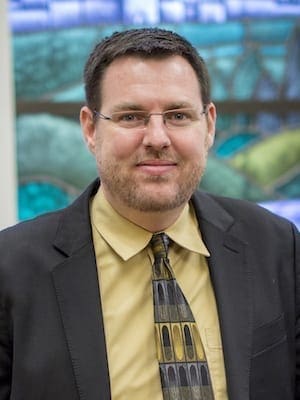Sin festers in the darkness. The same is often true in the politics of oppression.
Genocide, a term first used in 1944 to describe the deliberate and systematic destruction of a racial, political or cultural group, breeds in the shadows.
Torture, rape and whole scale destruction prevails where impunity abounds and information is suppressed.
All too frequently, the demons of genocide stalk the planet today from the Christians and Yezidis in Iraq living at the edge of extinction to the Rohingya Muslims decimated in Burma.
In the Nuba Mountains of Sudan, genocidal bombs fall amid international silence.
Located in South Kordofan, Sudan, the Nuba Mountains, an area approximately 40 miles by 90 miles, are home to an indigenous ethnic group known as the Nuba.
It is a region caught in the deadly crossfire of the Sudanese government.
Civil war erupted between Sudan and South Sudan in 1983, which left more than 2 million southern Sudanese dead and 4 million displaced.
The Nuba actively fought alongside South Sudan as staunch allies against the dictatorship of the Khartoum government to the north.
However, when a peace agreement between Sudan and South Sudan was inked in 2005, the Nuba Mountain region, an area traditionally located on the border but outside of South Sudan, was ceded to the north.
In June 2011, less than one month before South Sudan was granted independence, the Sudanese government began a new retributive and genocidal campaign against the Nuba.
Cargo planes converted into bombers have indiscriminately unleashed their hellfire unabated for more than three years amid virtual international silence.
Five bombs were dropped in a straight line on May 1, 2014, targeting the Mother of Mercy Hospital where the only known surgeon operating in the Nuba Mountains practices.
Six weeks later, on June 16, 2014, a second hospital was bombed even though its exact geographic coordinates had been provided by Doctors Without Borders to Khartoum.
Scholar Eric Reeves published the leaked minutes of an Aug. 31, 2014, meeting of Sudan’s senior military and security officials. The genocidal candor is startling.
Gen. Siddiq Amer, director of military intelligence and security, said, “This year the [Sudan Peoples Liberation Army-North] managed to cultivate large areas in South Kordofan State. We must not allow them to harvest these crops.”
He continued, “We should prevent them. Good harvest means supplies to the war effort. We must starve them, so that, commanders and civilians desert them and we recruit the deserters to use them in the war to defeat the rebels.”
Gen. Imadal-Dindin Adawy, chief of joint operations, said, “We should attack them before the harvest and bombard their food stores and block them completely.”
Throughout November and December 2014, this deadly design was implemented at the height of the sorghum harvest season in the Nuba Mountains.
While Americans celebrated Thanksgiving, Sudanese military planes dropped 32 bombs in six different locations; the Sudan Armed Forces deliberately burned large community farms in Dalami County, leaving more than 1,500 people without any staple food for a year.
Three thousand Nuba fled as refugees into South Sudan from Dec. 23, 2014, to Jan. 30, 2015, joining 220,000 other Sudanese refugees.
Nearly 70 percent of these new arrivals were children, and 10 percent suffered from malnutrition and measles.
Civilian casualties have risen since the start of 2015, as bombs and shelling in the Nuba Mountains remains an almost daily reality.
Voice of America recently reported comments by a local county commissioner, Mawia Ibrahim, who noted a difference between the present situation and previous conflicts in the region.
“The Sudanese troops intensified the shelling and the bombardment. It is because they lost the ground … So all they can do now is use the long-range missiles to reach where there are civilians,” Ibrahim said. “They are not even targeting the rebel barracks. They are only affecting the civilians. Most of the causalities now are the civilians.”
Additional atrocities are being perpetrated by the government in Darfur to the west, and it appears that the Khartoum regime is playing an active but behind-the-scenes role in aggravating the significant challenges currently occurring within South Sudan.
However, it is the Nuba who are living and, all too often, dying in one of the most contemporary and ignored genocides.
Genocide occurs when people of faith and goodwill are silent. Or perhaps more accurately, genocide endures when we choose continued paths of ignorance and non-engagement.
Our actions more than just our words must reflect the prevalent sentiment following the Rwandan genocide, “never again.”
 Elijah Brown is the chief of staff for the 21st Century Wilberforce Initiative. You can follow him on Twitter @ElijahMBrown.
Elijah Brown is the chief of staff for the 21st Century Wilberforce Initiative. You can follow him on Twitter @ElijahMBrown.
Editor’s note: This is the seventh article in a series focused on genocide. Part eight, looking at the Clinton administration’s response to genocide in Rwanda, will appear tomorrow.
Previous articles in the series are:
Genocide Awareness is Needed In April, Year-Round
Godfrey Uzoigwe Video Interview
Defining Genocide: No Loopholes for ‘Odious Scourge’
When Genocide First Entered Our Vocabulary
Baptists Sporadically Issue Condemnations of Genocide
Elijah M. Brown is the general secretary of the Baptist World Alliance.

